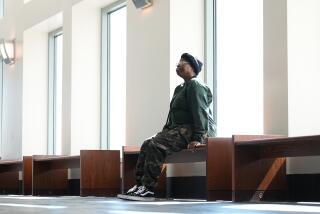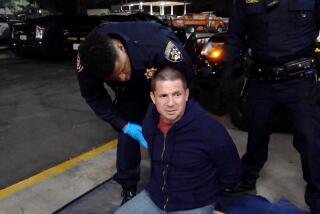Physicians and Drunk Suspects
- Share via
I am writing in response to the article on the arrest of an emergency department physician at the King/Drew Medical Center for refusing to draw the blood of a drunk driving suspect who did not want his blood taken (Metro, June 29). As a practicing emergency department physician in Santa Barbara, I feel a need to both render an opinion, and to stand in solidarity with a fellow physician who was unwilling to compromise a basic tenet of the accepted standard for physician-patient relationships.
Several points need to be raised. First, the physician’s primary duty in our society is to treat patients to the best of his or her ability. As long as a patient seems capable of reasonble judgment, that patient remains in total control of medical services performed for (to) him. The legal opinion mentioned in the article by a Los Angeles County deputy counsel regarding the liability of a health worker to a battery charge if he or she performs a procedure on a competent adult against his will has been around for years. It serves as a basic protection for all persons seeking medical care. Once a physician ceases to be a patient’s physician, and instead becomes a physician for the state or other agency, potential for abuse of basic human rights magnifies.
Second, I have great empathy for the job of the police officer in this situation, as well as in similar situations I have experienced in Santa Barbara. By arguing with officers and medical personnel, drivers, who are by all appearances impaired, can avoid the incriminating act of a legal blood draw. Theoretically, these people would automatically be convicted of operating a vehicle while under the influence, but the appearance of people in my emergency department with four and five similar arrests and convictions points to the inadequacy of present laws.
The solution to this problem does not lie in the arresting of emergency department physicians who refuse to hold down unwilling patients and perform procedures upon them in the guise of assisting police officers as part of our civic duty. Quite the contrary. Our civic duty demands that we refuse to cooperate in such situations.
The ultimate solution lies in harsh jail sentences for people driving while under the influence of alcohol or other drugs. All persons who appear intoxicated and refuse a legal blood draw should receive mandatory jail time. Legal blood draws would then assume the place of being a desirable thing to help prove one’s innocence, not one’s guilt.
DANIEL S. LEVY, M.D.
Santa Barbara
More to Read
Sign up for Essential California
The most important California stories and recommendations in your inbox every morning.
You may occasionally receive promotional content from the Los Angeles Times.










